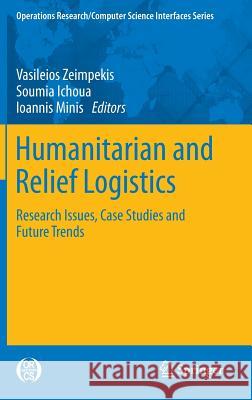Humanitarian and Relief Logistics: Research Issues, Case Studies and Future Trends » książka
Humanitarian and Relief Logistics: Research Issues, Case Studies and Future Trends
ISBN-13: 9781461470069 / Angielski / Twarda / 2013 / 220 str.
Humanitarian and Relief Logistics: Research Issues, Case Studies and Future Trends
ISBN-13: 9781461470069 / Angielski / Twarda / 2013 / 220 str.
(netto: 384,26 VAT: 5%)
Najniższa cena z 30 dni: 385,52
ok. 16-18 dni roboczych.
Darmowa dostawa!
This edited volume highlights recent research advances in humanitarian relief logistics. The contributed chapters span the spectrum of key issues and activities from preparedness to mitigation operations (response), planning and execution. The volume also presents state-of-the-art methods and systems through current case studies. Significant issues in planning and execution of humanitarian relief logistics discussed in this volume include the following: - Approaches that tackle realistic relief distribution networks. In addition to large-scale computing issues, heuristics may handle the complexity and particularities of humanitarian supply chains
- Methods that integrate real-time information while effectively coping with time pressure and uncertainty, both of which are inherent to a disaster scene
- Judicious recourse strategies that allow a quick and effective restoration of pre-planned solutions whenever an unpredictable event occurs
- Coordination of multiple parties that are often involved in managing a disaster, including NGOs, local, state and federal agencies. This volume provides robust evidence that research in humanitarian logistics may lead to substantial improvements in effectiveness and efficiency of disaster relief operations. This is quite encouraging, since the unique characteristics of disaster scenes provide significant opportunities for researchers to investigate novel approaches contributing to logistics research while offering a significant service to society.











